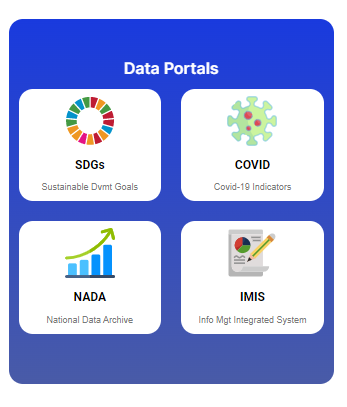Zimbabwe’s Consumer Prices Stabilize as Policy Interventions Yield Positive Results
Zimbabwe National Statistics Agency (ZimStat) has attributed a significant decline in consumer prices to policy interventions by the Ministry of Finance and Economic Development and Reserve Bank of Zimbabwe.
According to the recent report of ZimStat, the consumer price index (CPI) declined by 15% between June and July 2023, indicating that prices of goods and services have stabilized.
In addition, ZimStat also revealed, “The month-on-month inflation rate in July 2023 was -15.3 percent shedding 89.8 percentage points on the June 2023 rate of 74.5 percent. This means that prices as measured by the all items CPI decreased by an average of -15.3 percent from June 2023 to July 2023.”
The agency added that the month-on-month food and non-alcoholic beverages inflation rate declined by 30.7%, while the non-food inflation rate increased by 2.4%. The year-on-year inflation rate (annual percentage change) for July 2023 was 101.3%, which means prices increased by an average of 101.3% between July 2022 and July 2023.

RELATED CONTENT: Zimbabwe Government Unveils Measures to Stabilize the Economy
Decline of Prices?
The decline in consumer prices is a result of the ongoing policy interventions by the Ministry of Finance and Reserve Bank of Zimbabwe. These interventions are aimed at stabilizing the economy and reducing inflation, which has been a major challenge in Zimbabwe in recent years.
“Policy interventions by the Ministry of Finance and Economic Development and Reserve Bank of Zimbabwe continue to bear fruits following the stabilisation of consumer prices. This has been highlighted by the 15% decline in consumer price index (CPI) between June and July 2023,” ZimStat stated.
Furthermore, Zimbabwe’s economy has been facing numerous challenges over the years, including high levels of inflation, currency instability, and low levels of foreign investment. The country has struggled to attract foreign investment due to its complex business environment, volatile currency, and a lack of critical infrastructure.
However, the government is committed to implementing economic policies aimed at improving the business environment and attracting foreign investment. In 2020, the Ministry of Finance launched the Zimbabwe Investment and Development Agency (ZIDA), aimed at facilitating investment into the country.
RELATED CONTENT: The Informal Sector in Zimbabwe: 90% Unemployment Rate?
Foreign Investment
Moreover, the launch of the Zimbabwe Investment and Development Agency is a major milestone in our efforts to attract foreign investment. The agency is aimed at facilitating investment into the country by providing investors with a one-stop-shop for all investment-related services.
Meanwhile, Zimbabwe dollar has been gaining value in the month of July which eventually led to decline in prices of basic goods.
Lastly, despite the challenges facing Zimbabwe’s economy, the government is determined to implement sound economic policies aimed at stabilizing the economy, reducing inflation, and attracting foreign investment. The recent decline in consumer prices is a positive sign and a step in the right direction.
#News in Bulawayo #News in Zimbabwe Artist Arts BCC Bulawayo Bulawayo City Council Bulawayo Drugs Bulawayo economy Bulawayo industry Bulawayo news Bulawayo Police Bulawayo Water Bulawayo Water Crisis Bulawayo Women entrepreneurship Business Women Community Culture Currency Drug Abuse Drugs Economy Farmer Farmers Farming Informal Sector Informal Traders MSMEs Music News in Bulawayo News in Zimbabwe Police Police in Bulawayo Vendor Vendors water Water Crisis Water Shortage water supply issue Women entrepreneurship ZESA Zimbabwean economy Zimbabwe news Zimbabwe water crisis ZITF ZRP
Our stories told by us!
Join us for all News in Bulawayo and Bulawayo News in Zimbabwe.










